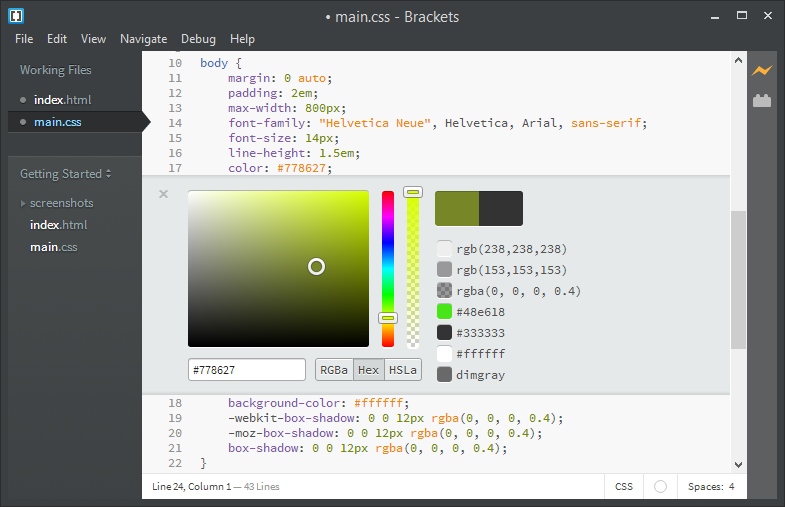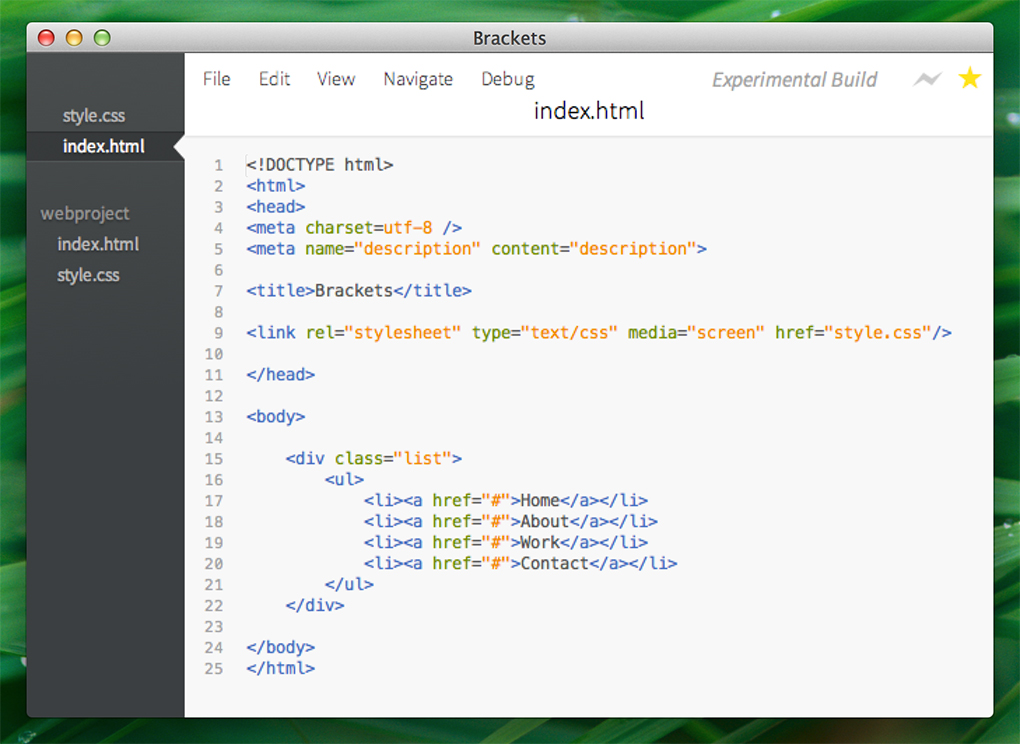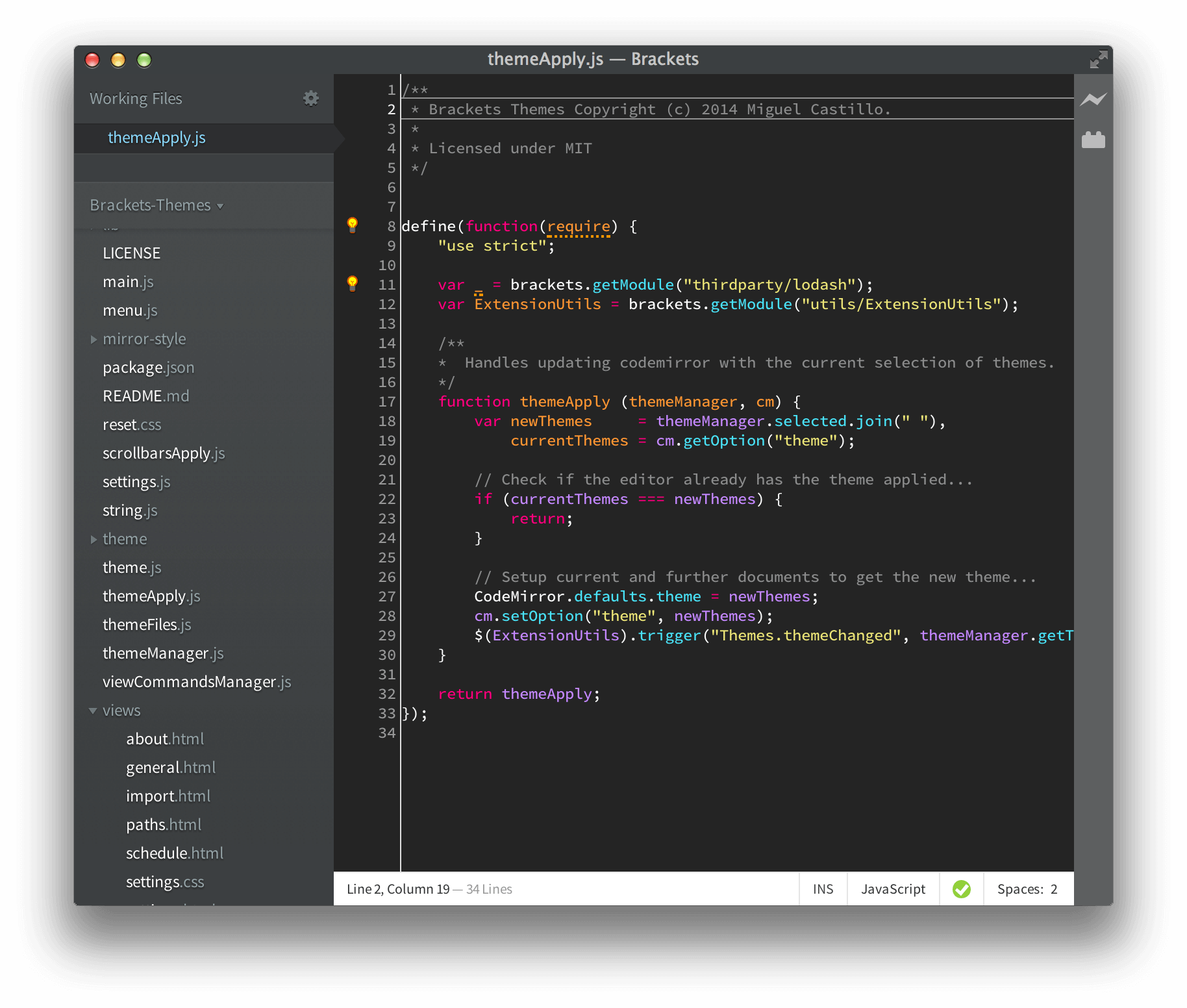
Snap is already installed and ready to go on Ubuntu 16.04 LTS (Xenial Xerus) or later, including Ubuntu 18.04 LTS (Bionic Beaver) and Ubuntu 20.04 LTS (Focal Fossa).įrom Ubuntu 14.04 LTS to 16.04 LTS, Snap didn't installed. Snaps can update easily and roll back harmlessly. Snaps are the best way to install the Brackets in the Linux distributions. Snaps are the application packaged with all their dependencies to run on linux distributions from single build. Install Brackets using DEB Package or source code.Here, we will discuss about two types of installations. Download the Adobe Brackets for the Linux here. The Adobe Brackets work on the different Linux distributions like Linux Ubuntu, Linux Debian, Linux Mint etc.Īdobe Brackets 1.14.2 is designed for Windows and Mac.

Note! Release 1.14.2 is targeted for Mac and Windows users only.īrackets installation process for Linux. Follow the above steps to install the latest version 1.14.2 on the Mac as well. The installation process is almost same as no customizations required during the installation. Step 10 – When opening the brackets editor for the first time, it opens with a default index.html page like below.īrackets 1.14.2 works on the Mac platforms OSX 10.11, 10.12, 10.13, 10.14.

Step 9 – Click on the start menu and then search for the brackets. The adobe brackets editor is now installed. Once the installation completed, then click on the Finish button. Step 8 – After clicking on the install button, it will take some time to install the brackets. Once the path verified, then click on the Install button. If there is a need to change the path, then click on change and then change the path (changing the path is optional).

Step 7 – After double click on the downloaded file, the Brackets installer window will open, showing the default path for the brackets. Step 6 – For installing the brackets, first, double-click on the downloaded file. Step 5 – Once the downloading process completed, the downloaded file present in the (default) downloads folder of the Windows system. Note! The latest version of this module is 1.14.2 at the time of writing this tutorial.


 0 kommentar(er)
0 kommentar(er)
